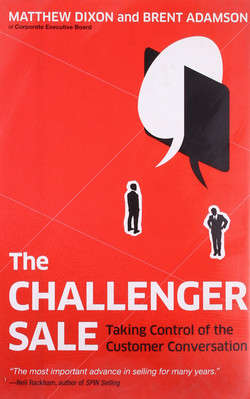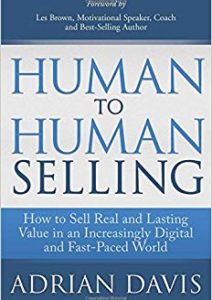There are 18 million people currently in Sales today in North America. Gartner Group predicts that only 4 million will be left by 2020. Is that likely? What we do know is that Sales is undergoing unprecedented transformation. As a sales manager, are you preparing your team for the seismic shifts ahead?
When I started in sales 30 years ago, it was all about the product. We were trained on product features and how to convert these features into benefit statements. We were taught objection handling and closing techniques. It was all about booking appointments and telling prospects about our company history, company performance, and getting to the demo as quickly as possible. It’s hard to believe now, but back then, prospects actually found value in this approach. They would learn about capabilities they were not aware of and their environments were simple enough that we could tell them what they needed. While this form of selling has changed dramatically with the buyer’s journey, it’s surprising how many companies are operating with a derivative of this methodology.
Fast forward a couple of decades and now many sales managers encourage their sales teams to engage in relationship selling and consultative selling. These methodologies are now declining in effectiveness. What’s going on? Don’t people buy from people they know, like and trust? Isn’t it good to consult with a prospect before proposing your solution? While the answer to both these questions is yes, salespeople who engage in these methodologies appear to be steadily losing ground.
In their book, The Challenger Sale, Matt Dixon and Brent Adamson do a great job of articulating the results of their research on the type of sales behaviors that work in any economy. Based on the data, they have concluded that the next wave of sales effectiveness belongs to the sales profile they call “The Challenger.” In a nutshell, The Challenger is the type of salesperson who shows up to a meeting with deep enough insight about a customer’s industry that they are able to offer a fresh and provocative perspective on the prospect’s business. They are able to show the prospect opportunities and risks they didn’t know they had. They force the executives they meet with to think.
While this approach isn’t exactly new, I believe this it is gaining traction and will continue to do so in the years ahead for the following reasons:
- Decisions are moving up the food chain to senior-level executives. When senior executives meet with salespeople, they don’t care about products and they are not looking for friends. They are pressed for time and they want immediate value from any time invested with a salesperson.
- Every executive is operating in an environment of uncertainty. There are multiple factors that they must cope with, but which they have no control over. For this reason, they must always be open to potential help from external sources. For example, rising interest rates, fuel costs, new competitors, new technology, new legislation, and a myriad of other variables can dramatically and catastrophically affect any business.
- Shareholders and customers are constantly demanding more. No business can afford to be complacent. Every executive must demonstrate his or her value by constantly helping the company to improve.
As it becomes increasingly necessary to sell at higher levels within an organization, sales managers must direct their teams to work differently. Here are 3 changes you must help your salespeople to make immediately:
-
Salespeople must become experts in their customers’ industries. In the next few years, it will be unacceptable for a salesperson to show up with high product knowledge and low industry knowledge. In the future, executives will expect every initial meeting to begin with deep insights into those factors in the industry that the executive has no control over. Executives will place high value on salespeople who can clearly articulate how the industry is changing, help them identify their biggest risks, and offer potential and proven solutions. Salespeople will need to tell stories that fire the imagination and clearly show executives the changes that are possible.
-
Salespeople must transition from selling products and services to selling solutions. This is not as easy as it sounds. Many salespeople simply bundle a few products and services together and label it a solution. Changing labels does not convert your products and services into a solution. In their excellent book Solution Business, Kaj Storbacka and Risto Pennanen, state that solutions have the following characteristics:
-
They are long term. They do not simply address the current situation. They are designed to help the customer over the long term.
-
They are integrated. They combine multiple products and services into a fully integrated and interdependent system that is offered in a single commercial transaction.
-
They are embedded. Because they truly improve the customer’s work processes, the customer cannot do business without them.
-
They are strategic. They address the most pressing issues the customer is facing.
-
-
Salespeople must be able to articulate the economic impact their solutions have had on their clients’ businesses and the likely economic impact they can have on the prospect’s business. They will need to have strong business acumen and understand the impact their solutions have on the Balance Sheet, the Income Statement and/or the Statement of Cash Flow. The details of their product’s features will be secondary. What will matter most is the ability and the willingness of the seller and the buyer to enter into a partnership to achieve measurable results.
Many salespeople will not be able to make this transition. They will exit the profession. Sales managers need to get ahead of the curve. They need to recruit, hire, train, and coach based on these coming changes. While there will be fewer people in the profession in the future, those who remain will enjoy much greater success.






